Oz Four Ways – Wicked: The Life and Times Of The Wicked Witch Of The West
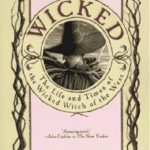 From the Travel Guide: If you think you’ve seen all that Oz has to offer, think again! Our Insider’s Tour reveals the Oz only a select few will ever encounter. You’ll venture beyond kitsch-filled tourist markets to witness the devastating impact of the Wizard’s autocratic rule: decaying infrastructure, gulags filled with political prisoners, and collective farms where enslaved Animals no longer dare speak their names. Shudder at the profligate nightlife of the wealthy elite! Meet in secret with dissident leaders! Learn the true story of the suppressed rebellion and its tragic visionary Elphaba, who stood alone against tyranny, only to be defamed by the regime as “wicked,” then brutally murdered by a foreign assassin. Here is the real Oz, the Oz behind the rainbow!
From the Travel Guide: If you think you’ve seen all that Oz has to offer, think again! Our Insider’s Tour reveals the Oz only a select few will ever encounter. You’ll venture beyond kitsch-filled tourist markets to witness the devastating impact of the Wizard’s autocratic rule: decaying infrastructure, gulags filled with political prisoners, and collective farms where enslaved Animals no longer dare speak their names. Shudder at the profligate nightlife of the wealthy elite! Meet in secret with dissident leaders! Learn the true story of the suppressed rebellion and its tragic visionary Elphaba, who stood alone against tyranny, only to be defamed by the regime as “wicked,” then brutally murdered by a foreign assassin. Here is the real Oz, the Oz behind the rainbow!
No, this isn’t your grandfather’s Oz, not by a long shot. In Wicked, Gregory Maguire turns the conventional narrative on its head by delving into the backstory of the Wicked Witch of the West, and asking a rather intriguing, if obvious, question: How did she become wicked…and a witch?
So, he begins at the beginning, and we learn a lot more about her, starting with her name: Elphaba. Along the way, we also learn a lot about Oz itself. It’s a long and winding road. You may want to top-off your coffee cup now.
There are enough spoilers ahead that I suppose I should tip my hat to John Otte and pull out a ‘zilla. Here you go.
Elphaba is born one stormy night in the eastern province of Munchkinland, into the family of Frex, a circuit-riding preacher married to a local heiress, Malena. Frex is a devotee of the Unnamed God, one of the three primary religions in Oz (more on that later). The baby is normal in most respects, though she arrives with a full set of sharp teeth—and green skin.
This gives her parents, and the attending midwives, some pause. Is the child cursed? Is she even human? They shrug their collective shoulders and carry on, keeping Elphaba out of the public eye as much as possible and giving her the care they would have provided an ordinary child, though her parents aren’t particularly attentive. Frex is often away at his other parishes, and Malena’s bedchamber has, so to speak, a revolving door—another factor making Elphaba’s legitimacy questionable. A second daughter is conceived a couple of years later, though some herbal medicine taken to forestall another green-skinned offspring turns out to be the Ozian equivalent of thalidomide, and little Nessarose is born without arms, though beautiful in every other way. Unlike Elphaba, her parents dote on her.
Elphaba’s childhood is unremarkable, though she seems precocious—and pathologically averse to water. One day, a strange clockwork puppet show arrives in town and puts on a satirical comedy that displays much-too-much intimate knowledge of their little community’s private affairs. It fatally undermines Frex’s pastoral authority. He endures public ridicule for awhile, then packs up his family and heads south to the boggy Quadling lands as a missionary to the aborigines there.
Some years later, we find Elphaba at college, just north of Emerald City in the town of Shiz, though her primary role is caretaker to her charming little sister, who continues to receive the lion’s share of affection from her parents and everyone around her. Their father sends Nessarose a pair of beautiful, possibly magical, silver shoes he acquired on one of his journeys, and Elphaba secretly covets them as a symbol of her father’s love, which she desperately longs for.
The green girl is still a misfit, but she’s grown up tall and strong—even beautiful, in her own way. Her passion and intelligence bloom at Shiz, and she becomes an avid student of the sciences, encouraged and mentored by a distinguished professor, Dillamond, who also happens to be a Goat. Sentient Animals are common in Oz, though their rights as citizens have eroded under the ruling Wizard’s regime, which is quietly moving them into rural farms to labor with the ordinary beasts. Dillamond is outraged at this treatment of his fellow Animals and outspoken in his opposition to it.
Elphaba also forms friendships with several of her peers, including Galinda, a wealthy northern girl who at first finds her odd and provincial but gradually warms up. They share an admiration for Professor Dillamond and find they have more in common than appearances might indicate. Just as things seem to be looking up for our heroine, the professor is found brutally murdered in his laboratory, and the crime is covered up by the local authorities. Elphaba and Galinda travel to the Emerald City to appeal directly to the Wizard regarding their beloved teacher’s murder and the treatment of Animals in general, but the Wizard brushes them off, though he seems intrigued by Elphaba. Galinda figures she can’t fight City Hall and returns to school, but Elphaba won’t let this miscarriage of justice go unchallenged. She joins a resistance cell led by one of her college chums, Fiyero, a young prince of the western Winkie nation, and begins participating in various insurgent acts against the Wizard’s authority. She falls in love with the prince, but unwittingly leads the authorities to his hiding place. He’s killed on the spot, and Elphaba flees into a self-imposed exile, burdened with guilt over her lover’s death.
She journeys westward, toward Fiyero’s homeland, delivering a son somewhere along the way. She enters the Winkie palace and takes up residence there as a refugee and miscellaneous helper for the royal family—including the prince’s wife, whom he wedded before college in an arranged marriage. Elphaba longs to confess her affair with Fiyero and her role in his death, but can’t bring herself to it. Instead, she becomes a hermit, building up a store of anger, resentment, self-loathing, and despair.
She buries herself in arcane studies, continuing Professor Dillamond’s research and investigating a mysterious manuscript she recovered from his laboratory. It’s written in a strange, alien script, but she finds she’s able to decipher some of it, and she mixes the magical incantations with her biological experiments, creating, among other things, winged monkeys.
In her absence, Elphaba has literally become the face of the rebellion. The Wizard demonizes her as the embodiment of evil and the proper focus of his subjects’ loathing: the green, poisonous, Wicked Witch of the West. Meanwhile, Nessarose has returned home and taken rulership of their mother’s family’s eastern fief in Munchkinland, which she rules with an iron devotion to the moral prescriptions of the Unnamed God. Her disgruntled countrymen take to calling her the Witch of the East.
Years later, a mysterious whirlwind appears over Oz and flings a small house to earth, crushing Nessarose, who was uncharacteristically in the wrong place at the wrong time. Elphaba isn’t so much dismayed at her sister’s demise as elated at the opportunity to seize the silver shoes, an obsession that has consumed what is left of her life. She travels to the eastern lands, only to discover that the occupant of the flying house has made off with the shoes and is headed toward Emerald City, at Galinda’s urging. This adds insult to injury—Elphaba’s former friend is now just another cog in the Wizard’s tyrannical machine. Elphaba hurries off in pursuit of the Kansas farmgirl who stole the silver shoes. The rest, as they say, is history.
This is a bleak, dreary story about the influence of nature versus nurture, the battle of will versus destiny, and the trajectory of human corruption. It shows how labels like “Wicked,” “Good,” and “Wonderful” can obscure truth and mask hypocrisy. In an interview earlier this year, the author called it a “meditation on evil.” There’s an element of social satire in its portrayal of the religion and politics of Oz. However, Wicked doesn’t seek to whitewash the Witch’s story so much as explain it. It also doesn’t absolve her of responsibility for her fate. Elphaba is dealt an unfortunate birth and a neglected childhood, but for a few shining years, she has a window of unlimited possibilities thrown open before her. There’s a sense of tragedy over what might have been but perhaps could never be. She is intelligent, but not wise. She becomes a victim of her own passions, makes poor choices in the pursuit of noble aims, and ultimately succumbs to despair and obsession, claimed by a destiny she could not run fast or far enough to outrun. Her soul is obliterated long before Dorothy thoughtlessly tosses that corrosive bucket of water on her.
Daddy Issues: Elphaba longs for her parents’ love, and particularly her father’s affection. His frequent absences and perpetual befuddlement combine to make him oblivious to his daughter’s plight. The harder she tries to please him, the less he notices, and his neglect is made manifest by the birth of Nessarose, whose handicap demands close attention and whose winning personality is everything Elphaba’s is not. Elphaba is jealous of Nessarose, but can’t bring herself to hate her, even as she lusts after Frex’s gift of the silver shoes.
There is No God in Oz: Maguire spends considerable time developing the three religions of Oz, which are alike in their impotence. The Unnamed God offers little beyond a set of rules and regulations. Though most Ozians claim to follow it, most are, in practice, adherents of the Pleasure Religion, which provides few rules but many opportunities to throw an orgy. The third option is the cult of Lurline, an innocuous pagan fairy-goddess whose story is intertwined with the creation mythos of Oz but is viewed primarily with nostalgia—a naïve fable of interest only to children and the elderly. Elphaba, though brought up in the Unnamed God tradition, finds none of these faiths satisfying and espouses atheism during her college years. This makes her seem reasonable and clear-headed by comparison to the other denizens of Oz, but when her world collapses around her, she has nowhere to turn for help or comfort. She is completely and unequivocally alone.
Pay Attention to the Man Behind the Curtain: Near the end of the story, Elphaba encounters one of the caretakers of the clairvoyant clockwork puppet show that destroyed her father’s reputation, and she discovers the true force behind the recent history of Oz. The manuscript she’s been struggling to decipher is the Grimmerie, a magical artifact from another world. Our world. It was sent to Oz centuries ago for safekeeping, as its secrets were deemed too dangerous for mortal men to possess. The Wizard came to Oz from Earth to find it and harness its power. The book has a mind and will of its own, though, and it has been actively working since its arrival to preserve itself—this is its sole motivation. Everyone and everything, including Elphaba, is expendable in pursuit of this purpose. The puppet show is one means of its influence. Bottom line, Oz is irredeemably corrupt, and Earth is the cause of it all. There’s one more shattering revelation at story’s end…well, perhaps not so shattering, as it’s telegraphed more than once…but I won’t spoil that one for you.
The Number to Call is BR549: What about Dorothy Gale, our usual star? Well, she’s a bit player in this story, an amiable hayseed a couple bushels short of a harvest who destroys everything she touches, despite her vacant niceness. Her companions are no better—two failed magical experiments and an escaped laboratory Animal. She kills Elphaba by accident, trying to be helpful.
Wicked is thought-provoking, and even challenging in some ways, but it’s not light reading, and it’s not for children. This Land of Oz contains nothing merry or funny or uplifting or lively. Vices abound, and some particularly ugly ones are on display. I found one scene in particular both offensive and gratuitous. It involved tertiary characters, did nothing to advance the plot, and disengaged me from the story. As a metaphor, it failed by offering an image that overwhelmed the underlying idea.
In sum, Wicked‘s mood is overwhelmingly hopeless, its one brief moment of sunshine quickly and decisively squelched. It seems to frame an existential worldview, though I can’t say for certain if this is a reflection of the author’s own view of life. The story’s primary virtue may lie in illustrating the utter misery of a universe absent of meaning and focused on self. In an interview last year, Maguire said, “… the understanding that our choices have consequences, even in worlds in which magic has some sway, is the signal (sic) most important element to include in any novel.” Wicked portrays this prescription admirably.
There are three other novels that follow in this series: Son of a Witch, which reveals the fate of Elphaba’s orphaned child; A Lion Among Men, the life and times of the Cowardly Lion; and the soon-to-be-released Out of Oz, in which civil war sweeps across Oz, and Elphaba’s legacy may yet be vindicated.
Next week, we’ll see one final twist on the story of Oz, as we take in the lighthearted, candy-coated spectacle of Wicked, the Musical, otherwise known as Elphaba and Glinda, the College Years. My teeth hurt just thinking about it. Be amazed as Broadway takes the story I just described and converts it into “family entertainment!”

































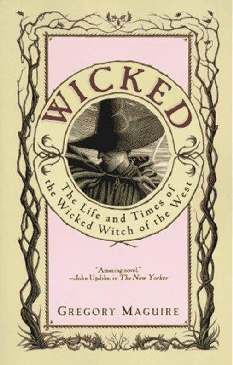


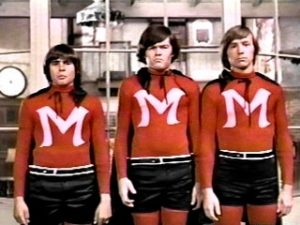
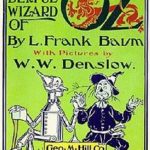
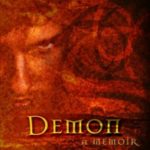
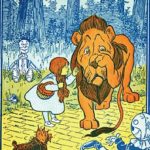





Wow, Fred, I feel as if I’ve read the book. Thanks for such a clear and riveting retelling. You could work for Çliffnotes, I’m pretty sure. 😉 Becky
Heh. It felt like I was going on forever, especially as compared to one of the CSFF Blog Tour reviews, where I can usually just set the stage and leave it at that. I don’t think I’ll have the same challenge next week. 🙂
It was hard to condense the story to a point where I felt I could talk about some of the deeper ideas and have it still make sense to someone who hadn’t read the book. I assumed most of our readership had not, though I’d be interested to hear from anyone who has to see how our interpretations line up.
I wouldn’t call it a fun read, and I’d be very cautious about recommending it, but it was well-written and inspired a good bit of pondering afterward.
I thought about reading this book. Then a friend of mine who I swap books with regularly told me about it. How it was a depressing “LIFE SUCKS AND THEN YOU DIE” kind of book. She slogged through it just to say she’d read it. I’m not interested in that sort of book. What’s even more irritating is that it’s more or less Wizard of Oz fanfic.
So a dude sits down and writes Oz darkfic and it becomes a bestseller. Whoop-tee-freaking-doo. You know who else takes beloved stories and makes them horrible? American McGee. Except there’s something morbidly fascinating about Alice from Wonderland or Red Riding Hood carrying large, bloody knives.